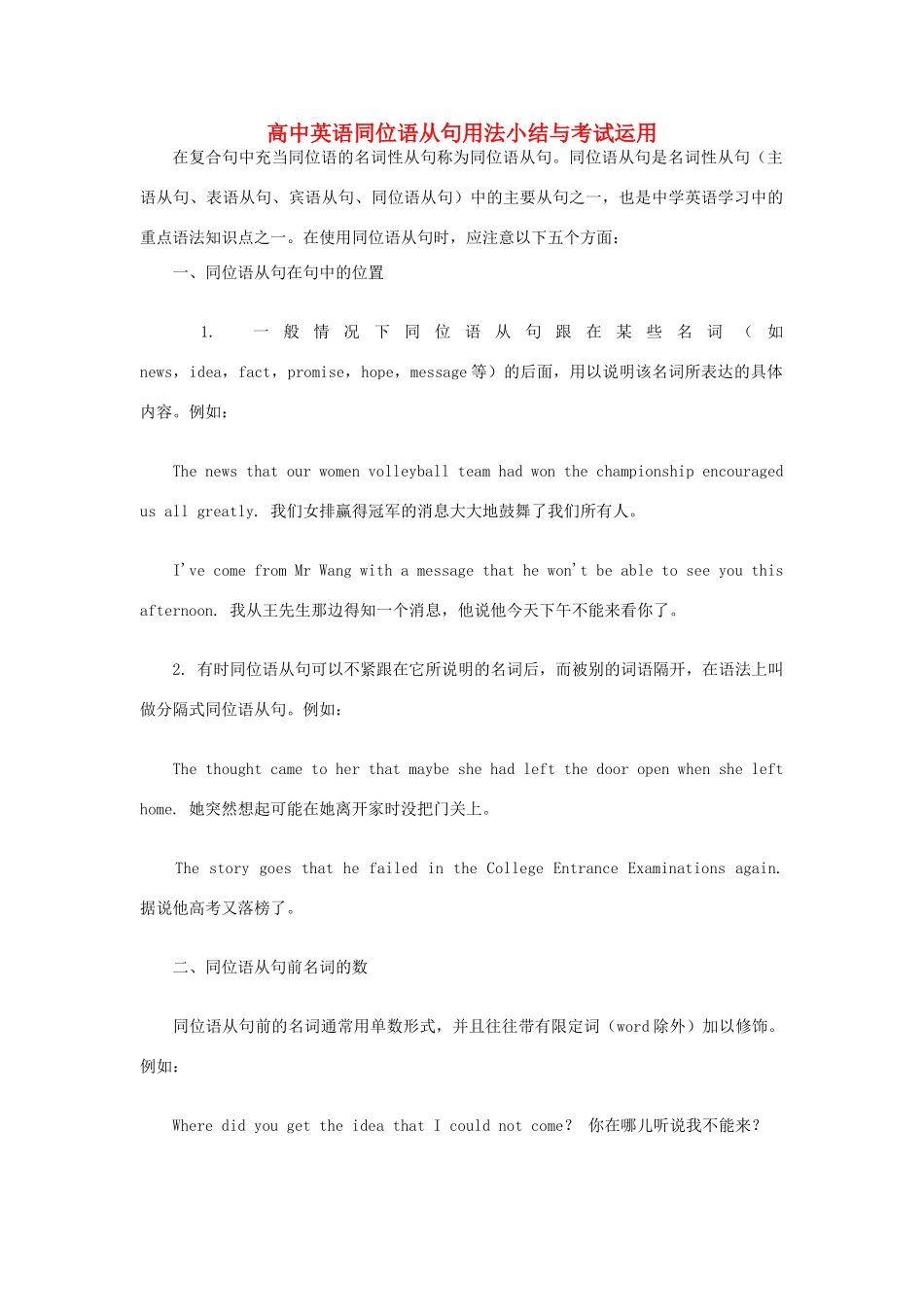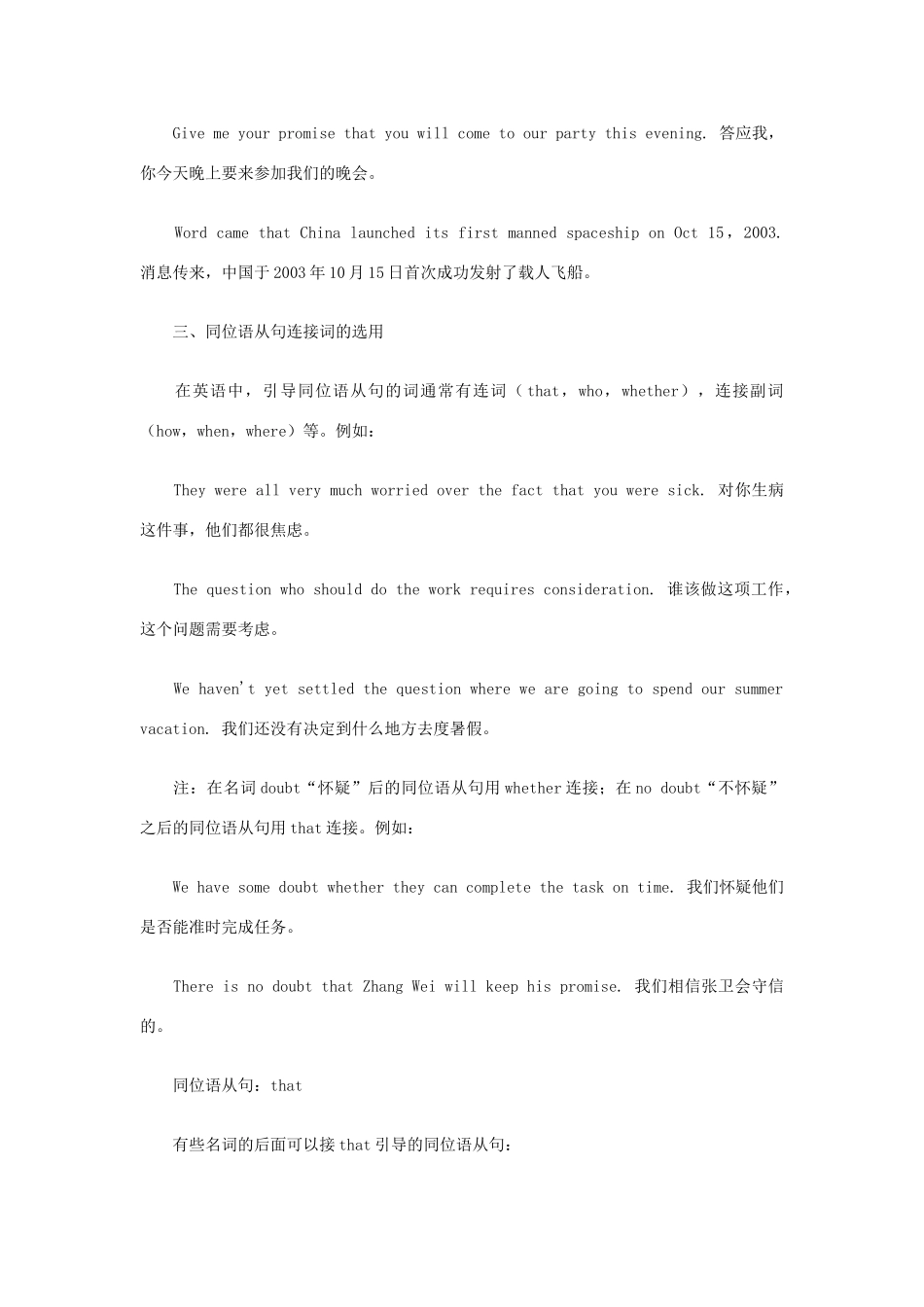高中英语同位语从句用法小结与考试运用在复合句中充当同位语的名词性从句称为同位语从句。同位语从句是名词性从句(主语从句、表语从句、宾语从句、同位语从句)中的主要从句之一,也是中学英语学习中的重点语法知识点之一。在使用同位语从句时,应注意以下五个方面: 一、同位语从句在句中的位置 1. 一般情况下同位语从句跟在某些名词(如news,idea,fact,promise,hope,message 等)的后面,用以说明该名词所表达的具体内容。例如: The news that our women volleyball team had won the championship encouraged us all greatly. 我们女排赢得冠军的消息大大地鼓舞了我们所有人。 I've come from Mr Wang with a message that he won't be able to see you this afternoon. 我从王先生那边得知一个消息,他说他今天下午不能来看你了。 2. 有时同位语从句可以不紧跟在它所说明的名词后,而被别的词语隔开,在语法上叫做分隔式同位语从句。例如: The thought came to her that maybe she had left the door open when she left home. 她突然想起可能在她离开家时没把门关上。 The story goes that he failed in the College Entrance Examinations again. 据说他高考又落榜了。 二、同位语从句前名词的数 同位语从句前的名词通常用单数形式,并且往往带有限定词(word 除外)加以修饰。例如: Where did you get the idea that I could not come? 你在哪儿听说我不能来? Give me your promise that you will come to our party this evening. 答应我,你今天晚上要来参加我们的晚会。 Word came that China launched its first manned spaceship on Oct 15,2003. 消息传来,中国于 2003 年 10 月 15 日首次成功发射了载人飞船。 三、同位语从句连接词的选用 在英语中,引导同位语从句的词通常有连词( that,who,whether),连接副词(how,when,where)等。例如: They were all very much worried over the fact that you were sick. 对你生病这件事,他们都很焦虑。 The question who should do the work requires consideration. 谁该做这项工作,这个问题需要考虑。 We haven't yet settled the question where we are going to spend our summer vacation....


